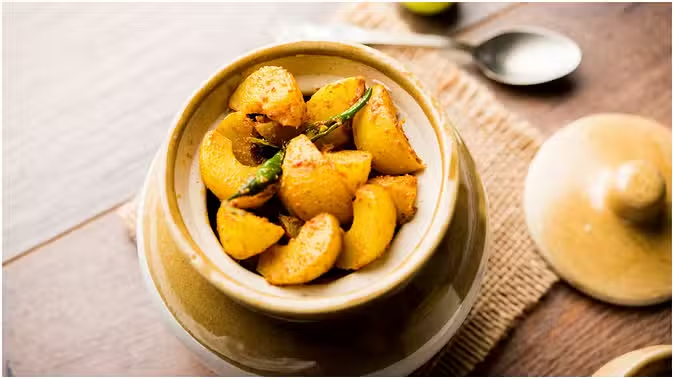Winters have arrived and if you are a resident of the capital Delhi or nearby, then along with the cold, pollution has also knocked. Polluted air along with cold winds is a toxic combination, which hurts the health of a person due to bad lifestyle and wrong habits. Due to this, it is normal to have more health problems in the winter season. Due to the bad lifestyle of winter and pollution, many health problems increase, such as hair loss, premature graying of hair, acne on the skin, gut complaints, etc.

To deal with these health problems, many people become dependent on supplements and medicines. However, by including some things containing medicinal properties in your diet, problems occurring in winter can be avoided. Here you are being told about the winter diet i.e. such food items without nutrition for winter which can be very beneficial for health along with increasing the taste of food.
Often the healthy benefits of Amla are mentioned in grandmother's recipes. Eating Amla improves eyesight. It has a positive effect on hair and skin, but many people do not like to consume raw Amla from the taste point of view. Although many recipes are made from Amla, which can be consumed, in winter, Amla pickles can be beneficial for both health and taste.
Nutrients found in Amla
Amla contains plenty of vitamin C, which according to experts nourishes the skin and hair.
Amla contains vitamin A, vitamin B1, and vitamin E.
It is considered a good source of calcium and iron.
Amla also contains potassium, phosphorus, magnesium, and antioxidant properties in very high quantities. Carbohydrates and fiber are also found in Amla.
The right way to consume Amla
Fresh and raw Amla can be pungent and sour. To make it tasty, eat it by cutting it into pieces. You can eat amla by adding a little salt to it. Amla contains all the juices except salty. In such a situation, adding salt makes it complete and the sourness is also balanced. To reduce the pungency of amla, you can eat it by adding a spoonful of honey. If you want, you can consume amla juice. Some people also consume amla murabba.

The question is whether you can eat amla pickle for health benefits. Health experts advise to avoid the consumption of amla pickles. The reason is the excessive oil and masala used in the pickle. But amla pickle prepared in foreign methods has neither excessive oil nor chili masala.
Amla pickles made in the western method are beneficial.
Amla pickle can be made by mixing vinegar, water, salt, and nominal oil, which maintains its medicinal properties. Amla pickles made using western technology have better bioavailability, preservation, and nutritional benefits than raw amla. The special thing is that this type of amla pickle can be stored for more than six months. It enhances the properties of vitamin C. By limiting the amount of oil and salt in the pickle, amla or lemon pickle can provide many health benefits like improving digestion, skin, and gut health.
Benefits of Amla Pickle
Vitamin C is a powerful antioxidant that brightens the skin, helps promote collagen production to reduce wrinkles, maintains skin moisture, and reduces dullness. Its anti-inflammatory property helps reduce inflammation, acne, redness, or irritation. Vitamin C works to even out the skin tone by reducing dark spots.
(PC: Adobe stock)










